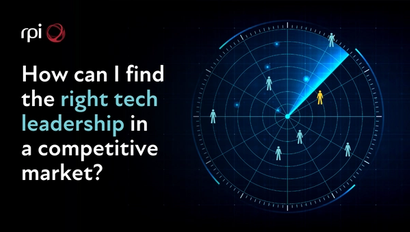In payments, legislation, technology, and consumer habits mean that new skills are required all the time. At the same time, even as the sector advances, none of them ever become irrelevant. That means the checklist only gets longer, and it’s unlikely that it’ll ever stop. Here are some of the abilities and the experience that you need in-house now and in the near future.
Product
Not long ago, developments in payments were project-based. As time has passed, that structure has become less relevant. Projects have completion dates, but digital products can and should be the focus of continual improvement. To consider them ‘finished’ would be complacent.
The need for constant rebuilding, revamping, and updating means that a payments business needs a team of broad expertise — UX, commercial thinking, technical experience, coding, and leadership being just some of them. One thing that everyone will need, whatever their role, is creativity. Conceiving a new product or a new feature, finding ways to execute it, and imagining how to present it to the market will all be impossible without hugely original thinkers.
Alongside comes communication. A brilliant idea will seem stupid to many people, and without effective communication (internal and external) some of the best ones will be dead on arrival.
UX
Speaking of brilliant ideas, creativity, and communication, it’s worth looking closer at the UX topic, especially as it relates to adoption. Any product or feature can sound hopeless but change the landscape forever, just as any can sound ingenious, only to fall flat in the market.
Amazon Dash sounded to many like a game changer. Place a button near your fridge, on your washing machine, or inside your bathroom cabinet, and you could order more orange juice, laundry liquid, or mouthwash with just one press. As you already know, it didn’t take off.
There’s no ‘sure thing’ in consumer payments, but the right talent will have a better chance of getting it right. Take for example the question of wearables. It’s absolutely possible to have a contactless payment device that’s worn like a ring or bracelet, so that it’s always available to the owner. That has the makings of a brilliant product, but there’s no telling whether wearables will take off.
They have the potential to change payments fundamentally, but since they’re part payment device and part accessory, they need to be something people want to wear, which means comfortable and stylish. They will also need to come in a very wide range of styles, to stand the best chance of wide adoption. Also, some of the best innovations in payments have been features for devices that people will carry anyway, particularly the mobile phone. Will people buy an additional device to pay with when what they already have offers several options?
It takes uncommon insight into psychology and consumer behaviour to make sound predictions about that sort of thing.
Partnerships
The sheer extent of new products and developments has a direct impact on the number of deals to secure and relationships to maintain. Let’s say a company is offering a ‘pay by bank’ solution, and they’re looking to work with a major supermarket. It’s in the best interest of both parties that the relationship lasts. Naturally, the solution provider wants a loyal customer, and the supermarket wants to offer a consistent experience to its customers. Not to mention that it’s more cost-effective for both businesses to maintain a relationship than to establish a new one.
In truth, ‘partnerships’ is a suite of many skills, and it’s largely the same as those needed for any sales role. The product may be incredible, but without the empathy, curiosity, and communication skills to establish and nurture the relationship, the partnership either won’t begin or won’t last.
There will also be whole partner-facing teams, whether that’s in outreach, account management, or technical support, which means that a payments business will need to coordinate and drive all of them in the same direction. That involves exceptional leadership at the head of each department, and at the very top of the business.
Sourcing the talent for your payments offering
Naturally, the people who have the background and expertise to hone products, sell offerings, and maintain partnerships in the payment space have hordes of companies seeking their services. When it comes to bringing them to your business, if you don’t have expert help, you’ll be lost in the crowd.
RPI’s talent network can give you a material advantage in the search. We have well-established relationships with some of the most sought-after experts in payments. They trust our sector knowledge, and they know that when we match them to a business, we’ve found them the perfect role. That means we’re perfectly placed to find talent that matches your vacancies and who will be excited to explore the opportunity.
To get started today, email people@rpint.com.



